Declines in public support for green and renewable energy – AP-NORC
June 20, 2025

June 20, 2025
Public support for green energy tax credits and renewable energy expansion has declined compared to 2022. Only about 4 in 10 favor providing tax credits for the purchase of electric vehicles, down from half in an AP-NORC poll conducted in September 2022. Support for solar panel tax credits also declined from about two thirds to just over half.
Along with the fall in support for green energy tax credits, fewer people want to see the United States expand offshore wind farms or solar panel farms compared to 2022. Still only third of the public want increased offshore drilling for oil and natural gas, unchanged from 2022, and even fewer support an increase in coal mining.
Few adults have a lot of confidence in the federal government’s ability to ensure the safety of water, food, or air. Though confidence in FEMA is quite low, most say the federal government should play a major role in managing and dealing with natural disasters. The public has more confidence in national and local weather services and reports.
The decrease in support for green energy tax credits is driven mostly by Democrats and independents. In September 2022, 71% of Democrats and 49% of independents favored tax credits for electric vehicles. Now, while still a majority, 58% of Democrats support electric vehicle tax credits along with only 28% of independents.
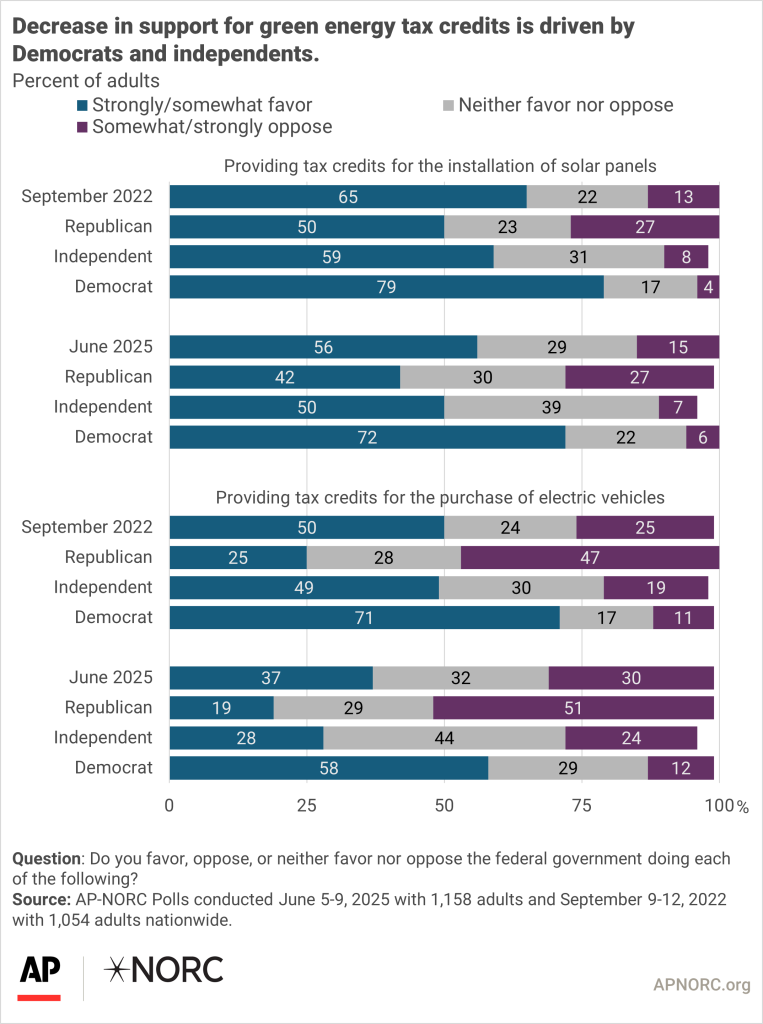
Along with the reduction in support for tax credits, there is less support for expanding offshore wind farms or solar panel farms. And only about a third continue to favor the expansion of offshore drilling for oil and natural gas. Few would like to see more coal mining.
As with the support of tax credits, Democrats and independents are less in favor of an expansion of solar panel farms or offshore wind farms compared with September 2022, while Republicans have stayed more consistent.
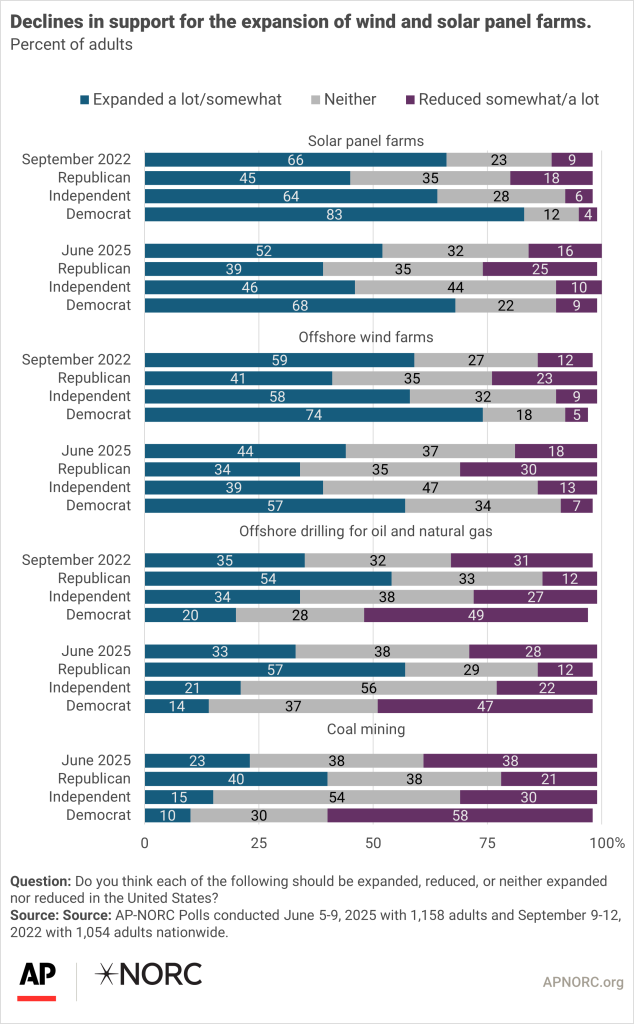
A majority of the public support consumer information and rebates for more efficient home appliances and a reduction in the amount of greenhouse gases companies can emit. About 4 in 10 favor funding projects to reduce inequality in the impact of climate change. Few support auctioning off more public land for oil drilling with 40% in opposition. These levels of support are about the same as 2022.
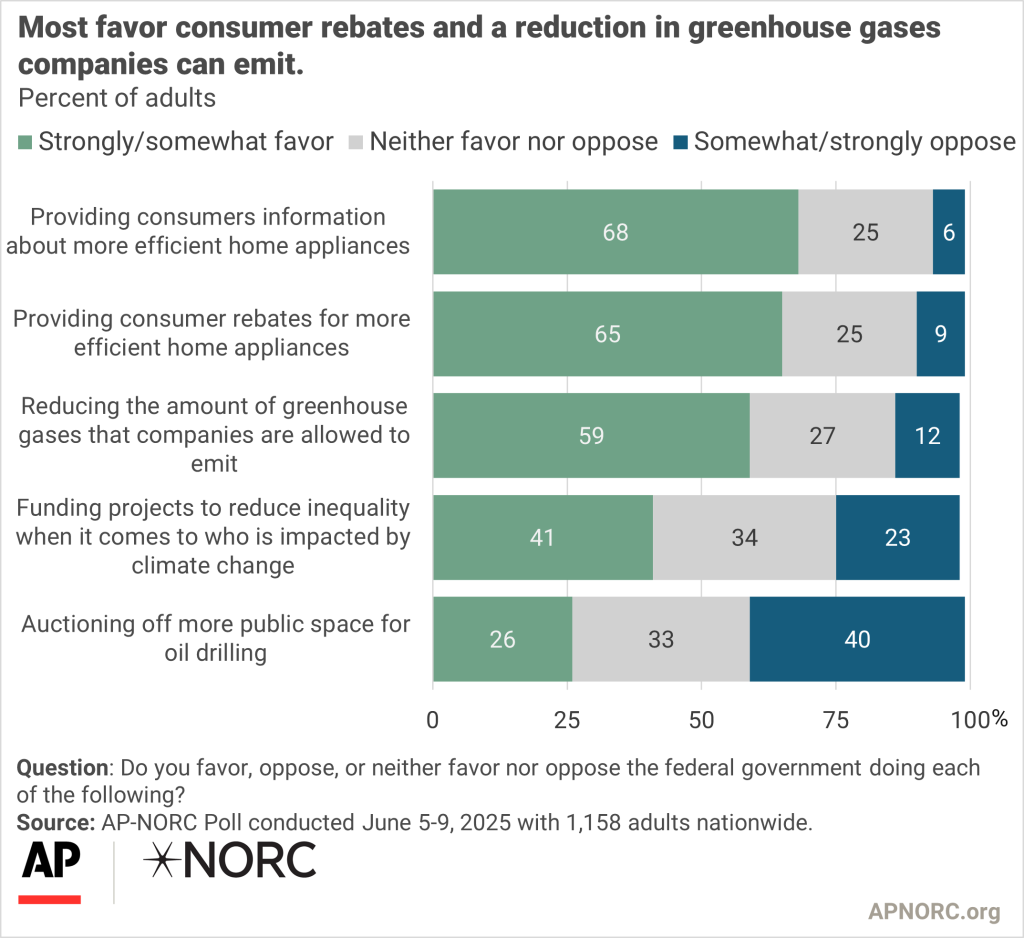
Only about a fifth of adults are extremely or very confident in the federal government’s ability to ensure the safety of drinking water, the air they breathe outdoors, or meat, poultry, and produce sold in grocery stores. About 4 in 10 are somewhat confident and another 4 in 10 have little confidence. About half of Democrats have little to no confidence in the federal government’s ability to guarantee the safety of water, food, or air, compared with about 7 in 10 Republicans who have at least some confidence.
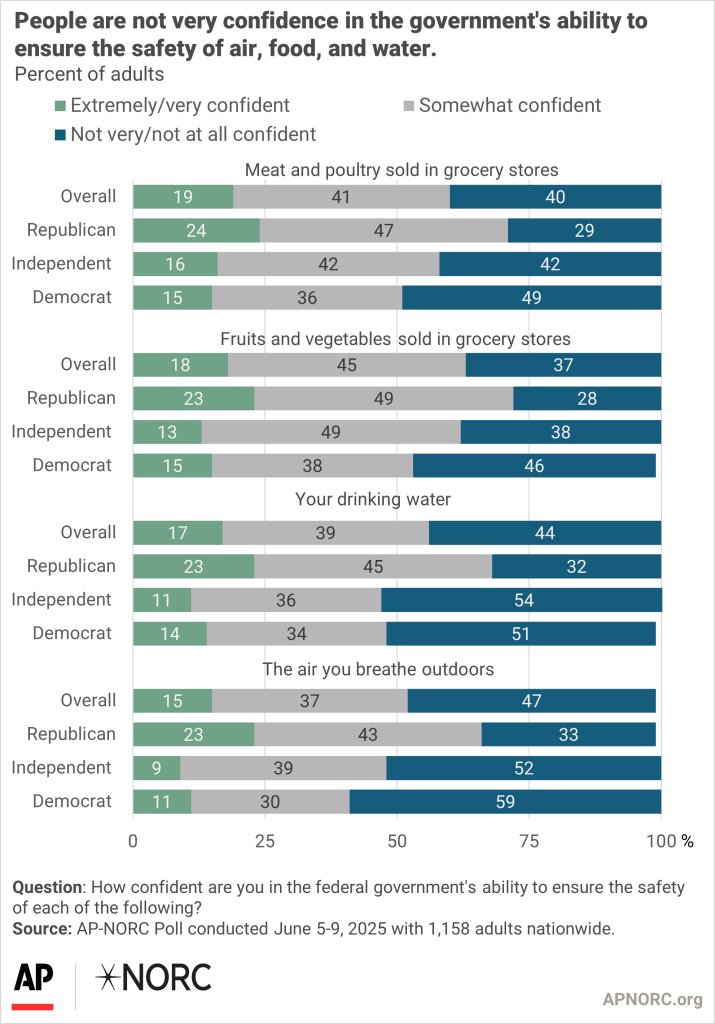
The majority of adults, including majorities in both parties, say the U.S. government should be taking a major role in dealing with natural disasters. Tracking and warning people about natural disasters, providing aid, and helping to rebuild after a natural disaster are seen as key responsibilities of the federal government.
Fewer, though still 56%, say the same for the federal government’s role in combatting climate change to try to keep extreme weather from getting worse. Democrats and independents are much more likely to say the U.S. government needs to be taking a major role in combatting climate change, while most Republicans think the U.S. government should have a minor or no role at all in this issue.
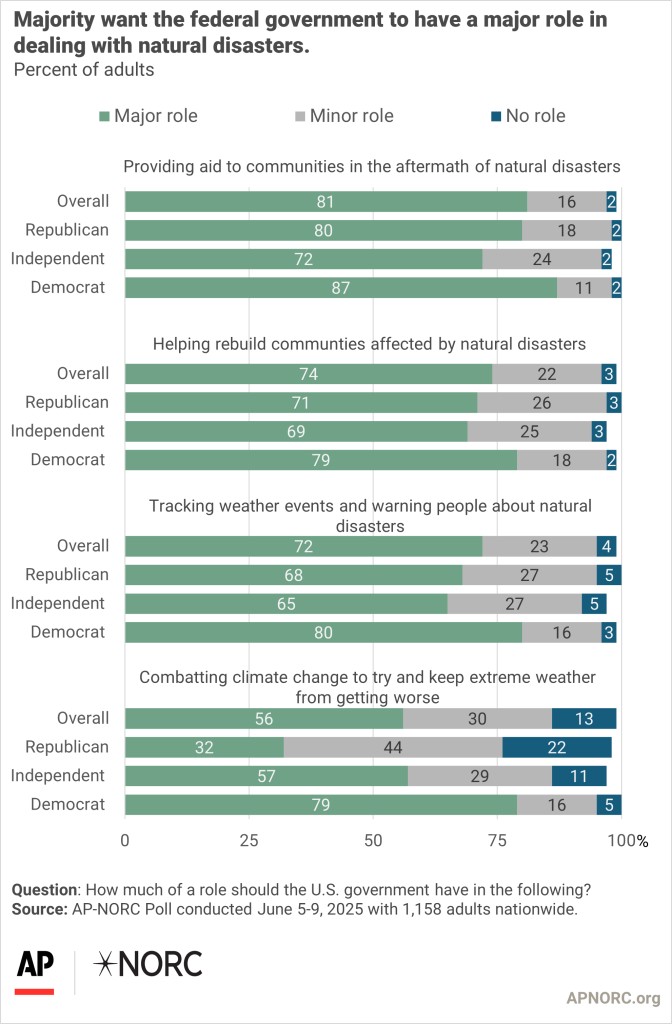
While most of the public wants the U.S. government to take a major role in handling natural disasters, only 22% are extremely or very confident in the Federal Emergency Management Agency (FEMA) and a third have little to no confidence. Members of both parties are skeptical about FEMA. About 4 in 10 are highly confident in the National Weather Service or their own local weather report.
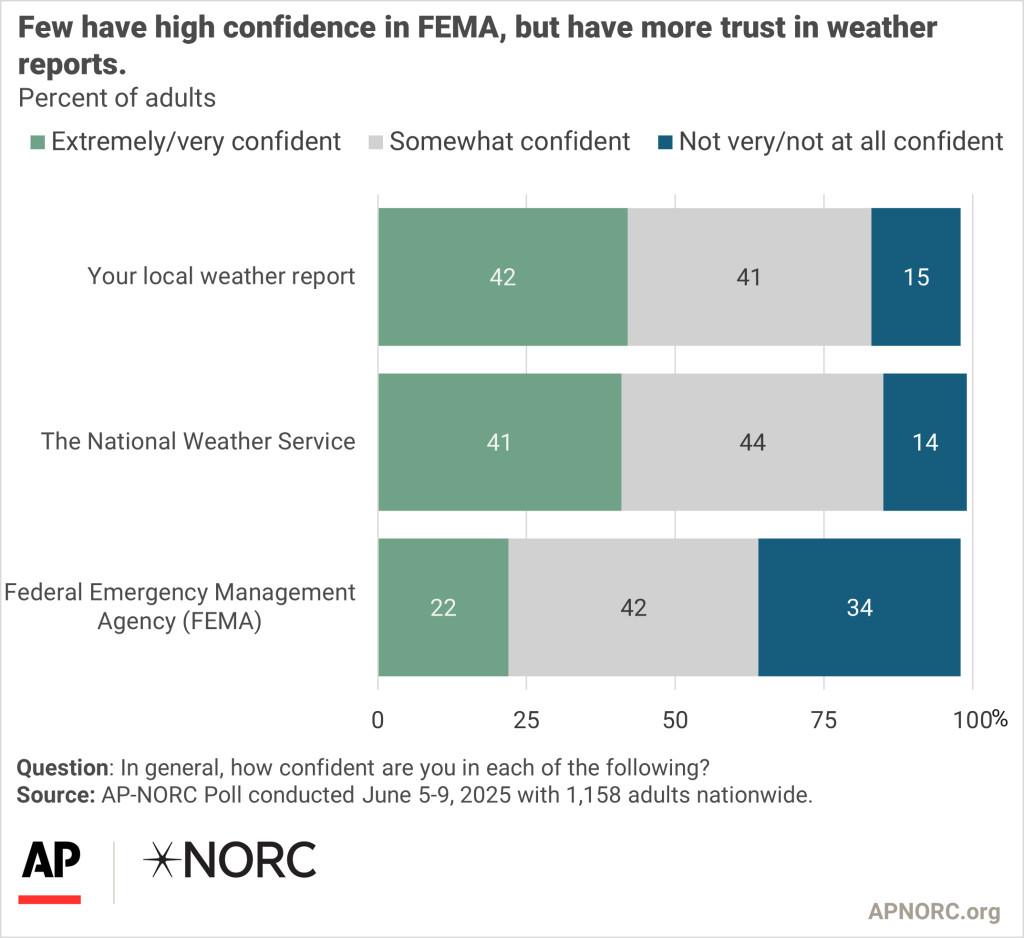
The nationwide poll was conducted June 5-9, 2025 using the AmeriSpeak® Panel, the probability-based panel of NORC at the University of Chicago. Online and telephone interviews using landlines and cell phones were conducted with 1,158 adults. The overall margin of sampling error is +/- 4.0 percentage points.
- Suggested Citation: AP-NORC Center for Public Affairs Research. “Declines in public support for green and renewable energy.” (June 2025). https://apnorc.org/projects/declines-in-public-support-for-green-and-renewable-energy/
Search
RECENT PRESS RELEASES
Related Post




